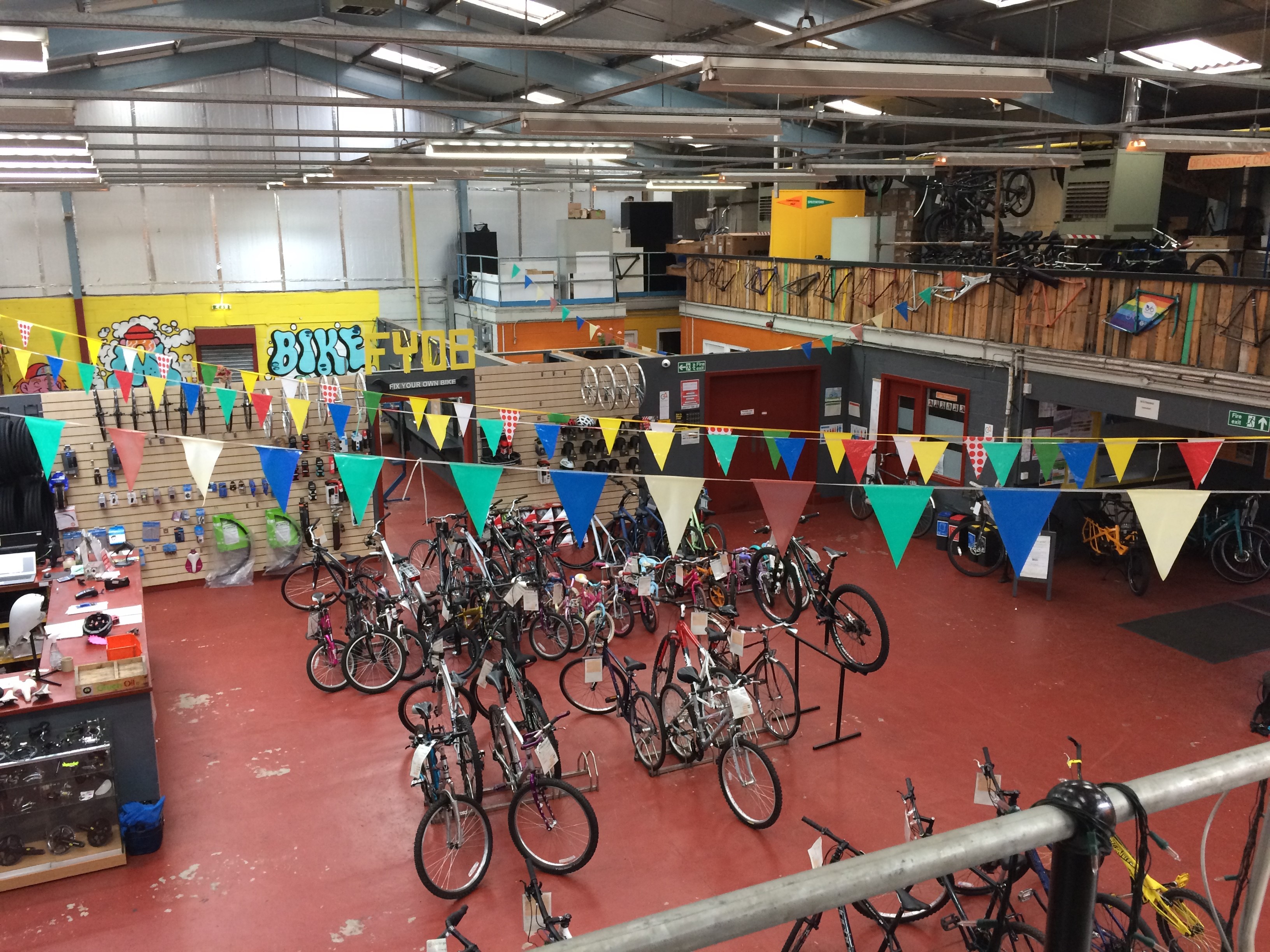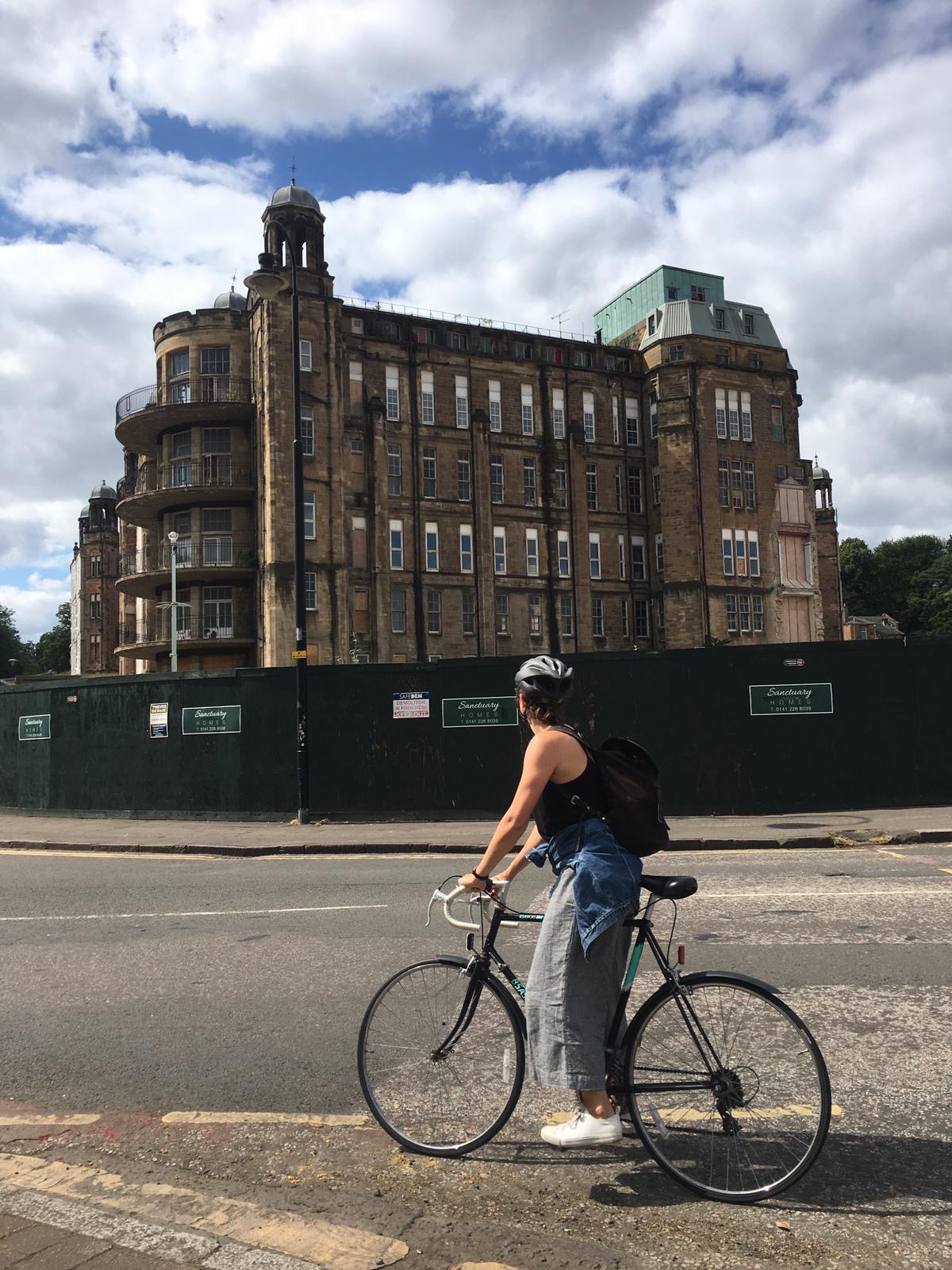Leisure
Fixing a flat: finding freedom through new skills
5 December 2019
Cycling Scotland team member, Clare, shares her experience on how learning a new skill has helped her gain confidence.
One of my resolutions this year was to learn how to look after my bike.
To set the scene...
I’ve happily ridden my bike for years and love it for everything it does for me. As a “I’m running five minutes late” kind of a person, my bike whizzes me to exactly where I want to be in less time than walking or public transport, and, working on top of a hill, it keeps me fit as I slog my way up. I cycle to work in a skirt, I hop on it to get to a gym class and I nip to the shops; I’m not fast and that’s fine by me. Any time I’ve moved to a new city, my bike has been a way of piecing together the jigsaw puzzle of an unknown place.
For years, though, I’ve raked my bike around, would leave it outside in the rain, neglect to pump up my tyres for months and wonder why my worn-out brake pads wouldn’t work. Anytime there’d be a Dr Bike session at work, the mechanic would shake their head, wince or tut – normally all three.
So how come I treat something I love and rely on, so badly?
A combination of embarrassment, lack of time to learn something new, and a fear that I’d look stupid for not knowing my derailleur from my down tube prevented me from going to a class. How many bikes must there be gathering dust in garages, and how many people across the country keen to cycle yet unsure how to get their bike on the road? Cycling in Scotland has enough barriers without these easy to overcome ones being part of the mix as well.
Time to learn something new
With 2020 fast approaching and the weight of my resolution hanging over me, I finally booked myself onto some free courses run by Bike for Good, a community project conveniently located just around the corner from my house. Bike for Good was running four free maintenance classes on a rolling rotation, teaching you how to clean and look after your bike, change an inner tube, repair a puncture, and change brake and gear cables. Ideal!

Every other Thursday I would go down to their chilly warehouse and lose myself in learning how to fix something, coming home covered in oil to tell my husband what I’d managed to do. As someone who sits at a computer all day, getting my hands dirty (there were gloves available, I just rejected them!) felt quite liberating and the day when I replaced and tightened my brake cable was so satisfying. The instructors, Claudio and Karolis, were so patient and helpful, no question was ever too daft, and it was encouraging to meet others on the course who had felt the same as I had.
What did I learn?
I’m not going to pretend that a four-week course was life changing and that I’m packing in my job to open my own bike shop… but simply by learning some basic skills I feel so much more empowered. On a straightforward level, my purse is happy (I won’t have to pay for a routine repair because I can now do it myself) and I don’t have to worry about getting stranded somewhere with a puncture so maybe I’ll cycle a bit further next time.
On a deeper level I feel more independent not having to ask a bike mechanic for help. We know that there are big barriers to women cycling – lack of confidence, infrastructure that doesn’t reflect the multiple journey types that women do, and embarrassment at lack of skills or knowledge being just a few – so if I can challenge my own insecurities, then I hope this will help others to do the same too.
How to get started
I’d encourage anyone to learn some basic skills, some handy links to get you started are:
Ask for help:
- If you have a Bike User Group (BUG) at your workplace, ask if a colleague can teach you over lunch in exchange for a doughnut
Courses:
- Adult Cycle Training
- Bike for Good
- Glasgow Bike Hive
- Edinburgh Cycle Co-op
- Recyke-a-Bike
- Cycling UK’s Big Bike Revival runs pop-up Dr Bike and maintenance classes
- See a range of services stores offer
Online:
- Take a look at Zero Waste Scotland for bike upcycling services near you, most of which will offer classes on skills and maintenance
- YouTube has a wealth of helpful videos
- Global Cycling Network channel on YouTube: simple, entertaining videos

